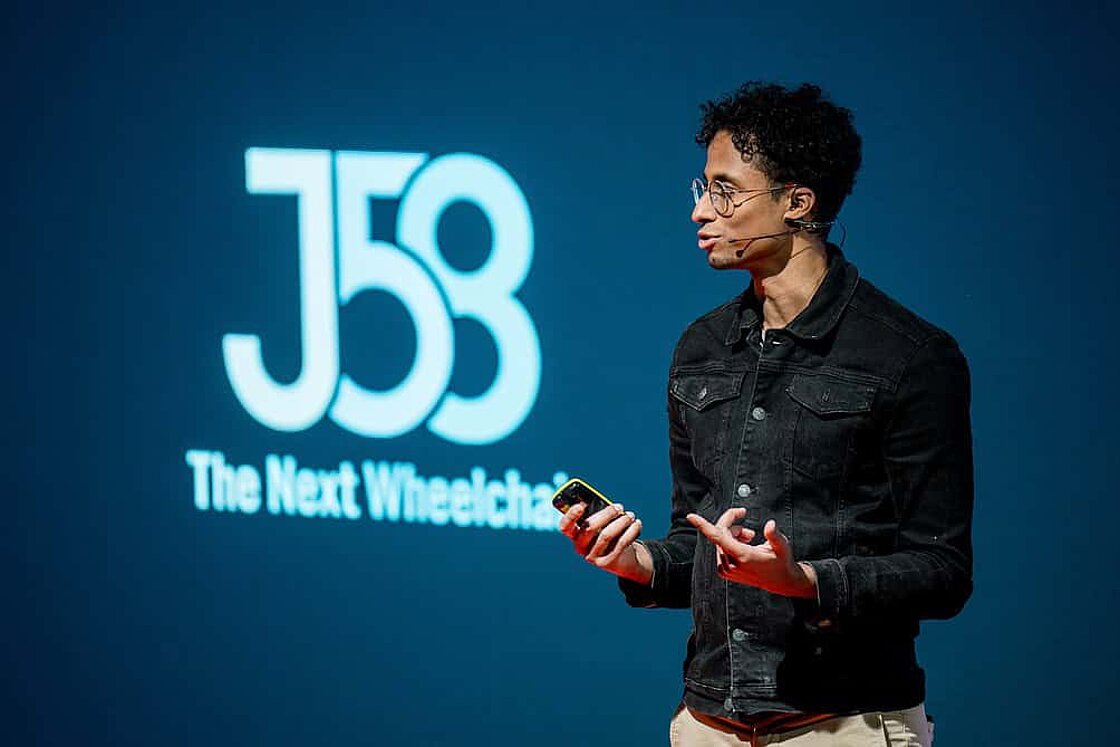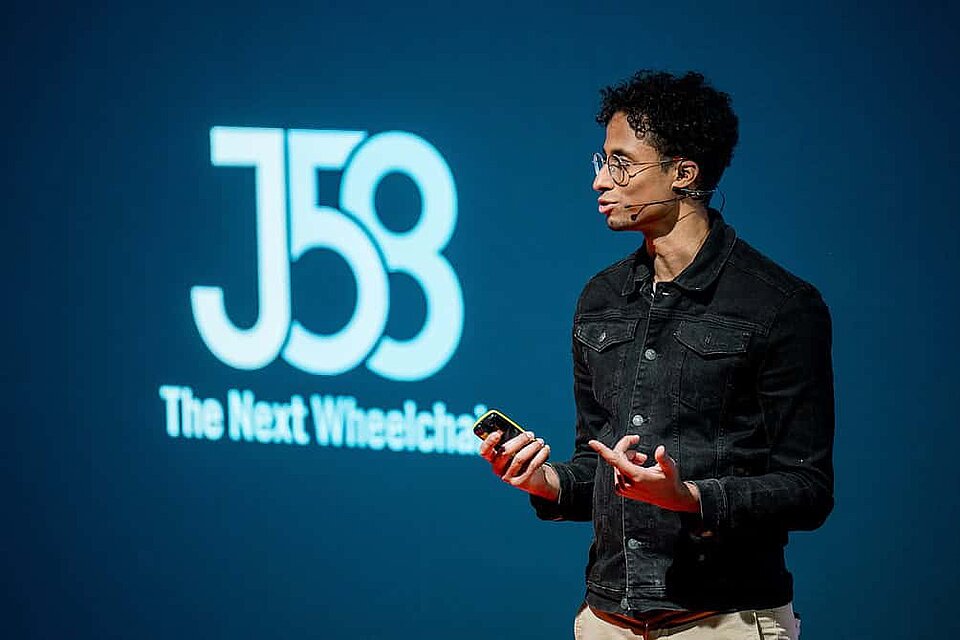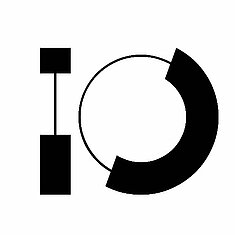J58 wins the 4TU Impact Challenge with a stand-up wheelchair

J58 is the winner of the sixth edition of the 4TU Impact Challenge. The startup makes a mechanical stand-up wheelchair.
Having a conversation at eye level or hugging someone while standing—for many people, these are the most normal things in the world. However, for people permanently confined to a wheelchair, these forms of social contact are not natural. The founders of J58 came up with a solution: a mechanical stand-up wheelchair that allows users to stand in and sit. It is a simpler and cheaper version of the electric stand-up wheelchairs already on the market.
“Our wheelchair is much lighter, and users do not have to think about charging a battery. Our system works with the same mechanism as the car trunk lid,” says Gabriel Costa, co-founder of J58. The entrepreneur – with a background at the University of Twente – wants to enter the market with the product next year.
Costa was one of six other entrepreneurs who participated in the finals of the 4TU Impact challenge on Thursday, November 7. They pitched in a packed theater on the Delft University of Technology (TU Delft) campus. The crowd included the three-member professional jury, enthusiastic students, and employees of the four Dutch technical universities.


Small vertical farm
The expert jury declared J58 the winner; the audience voted for Hippotainer. This startup, affiliated with Wageningen University & Research, makes a fully functioning vertical farm in a shipping container. Both startups will receive a 4TU Impact Card. With this prize, the startups can participate in one of the 4TU Federation‘s missions, such as visiting an important location or conference.
From the North Pole to the desert
“We are very happy that the audience chose us as the winner. It means that people see the impact of our product,” said Jort Maarseveen, co-founder of Hippotainer, just after receiving the award. With his startup, Maarseveen wants to contribute to global food security. In their vertical farm, crops can grow from seed to harvest. The container can be anywhere in the world, from the North Pole to the desert.
In the coming time, the company is committed to running several projects to test their system and get in touch with different parties. “Learning by doing,” he states. “In addition, of course, we will continue to develop.” For instance, Hippotainer will look at how to make the system suitable for growing more crops.


Innovative entrepreneurship
In the 4TU Impact Challenge, the best student startups from the four Dutch technical universities compete against each other. Each university already held its preliminary round in the spring and selected the best teams for the national competition. They were prepared through workshops on entrepreneurship for the grand final, which was organized by TU Delft this year.
Impact – as the name suggests – is at the heart of this competition. The young entrepreneurs are motivated to contribute to solving social problems. The finalist startups focus on a variety of sectors:
- PermaVoltaics looks at solutions to enable agriculture in arid areas.
- 4CUES.ai is developing a smart system based on AI to help factory operators perform their work faster and easier.
- Tomorrow Energies is developing a platform of local energy hubs in which people can work together to use renewable energy in the best possible way, for instance, by sharing excess energy from solar panels with neighbors.
- ArtVista makes museum visits more interesting by using a smart app that provides additional information about works of art on demand.
- TouchPulse is working on an app to improve navigation for blind or visually impaired people.
The impact of 4TU
The four technical universities in the Netherlands are working together in the 4TU.Federation. They join forces to maximize knowledge and creativity in the technology sector. They do this in the areas of education, research, and knowledge valorization, which includes the Impact Challenge. The students bring the knowledge they have gained back to society through startups and student teams. Their products and services contribute to a more sustainable future.

